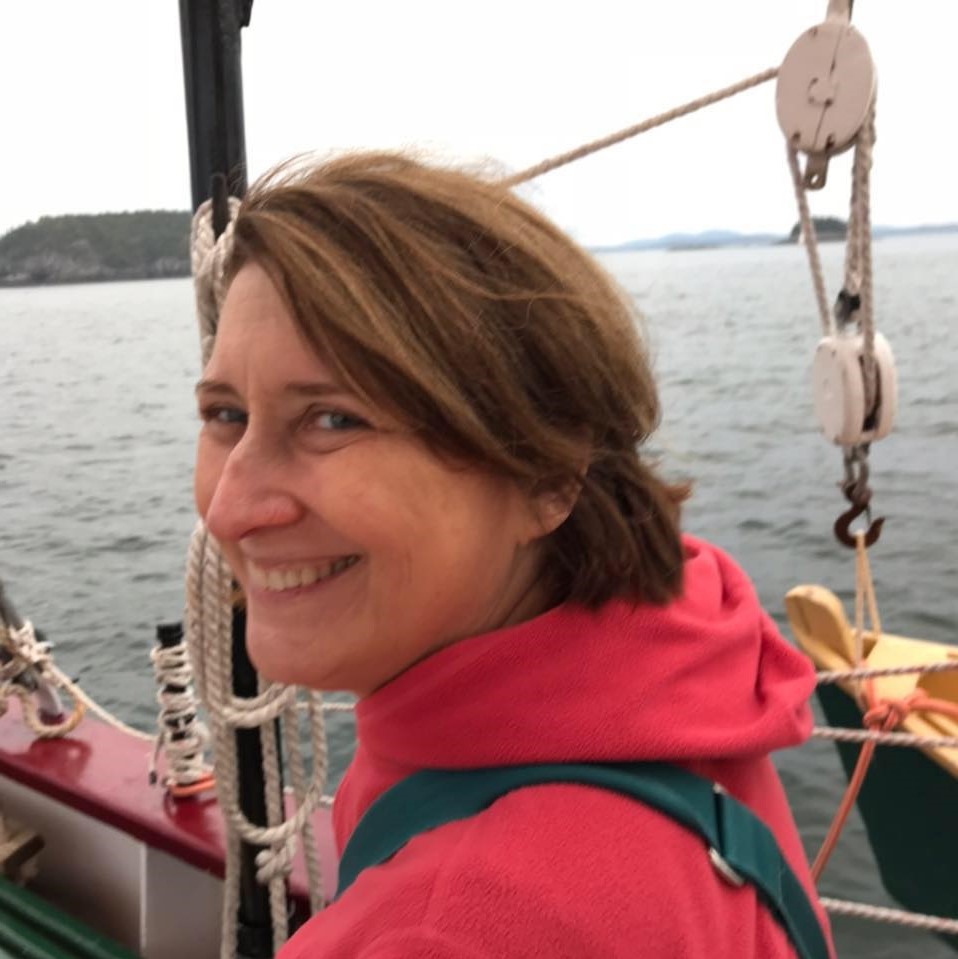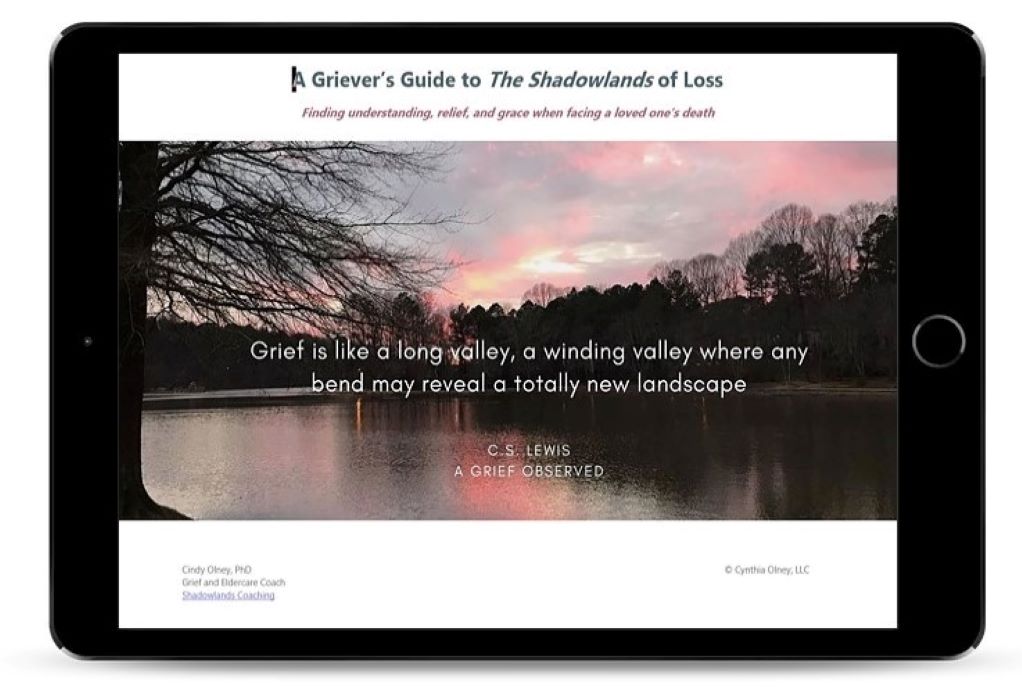It was Aisle 8 that undid her.
During the final year of his life, she’d got his medical supplies in Aisle 8.
After he died, she no longer needed anything in this part of the store.
Half a year later, here she was. Reflexively wandering into Aisle 8 on her way to Household Goods.
And, suddenly, she’s weeping.
Grief completely blindsided her.
“Is this normal?” she wondered.
The Weirdness of Grieving
Most of us aren’t prepared for the weirdness of grief.
The strange cocktail of emotions that includes deep depression, teary nostalgia, panic, and gallows humor.
And the triggers! They’re hiding everywhere, in grocery stores, closets, and car trunks.
The experience of grieving is weird because we don’t talk about it to each other. Society prefers we keep our sorrow under wraps.
So, when we lose someone dear to us, we’re completely unprepared for the experience.
What no one tells us is that grieving is learning.
Life has been turned on its head. We must learn to navigate a whole new way of being.
Because learning is something we do our whole lives, seeing grieving as a type of learning may make it feel more familiar and understandable and give us the patience to allow this remarkable process to unfold. ~ Mary-Frances O'Connor, The Grieving Brain
Learning takes patience, time, and energy.
Not to mention motivation. Which is tough when it comes to grief, since you never wanted these lessons in the first place.
But learning also means you don't have to grieve forever. You can learn your way out of it. Sorrow is NOT your destiny.
Fortunately, we humans are born to adapt. Major life transitions, like death of a loved one, always change us. They force us to learn in preparation for our next level of life.
Bereavement research confirms that the vast majority of us can and do recover.
And, we know a lot about how resilient healers resolve their grief.
The Lesson Plan
Grief therapist Alan Wolfelt has written over 100 books on grief recovery. Most of them revolve around what he calls the Six Needs of Mourning.
We help ourselves heal more quickly and completely by attending to these needs.
Acknowledge the reality of their loved one’s death. Denial acts as a shock absorber. It provides a buffer from the full force of loss in the early stages of grief. It works so well, it’s tempting to stay in that numbed state. At some point, we have to take a deep breath and face the reality of our loss.
Feel the pain of loss. As we drop denial, the grief floods in and it hurts. Physically hurts. We need tools and techniques to withstand the pain. We also need to learn to “dose” our grief, alternating between deep dives into grief and soothing distractions.
Remember the person who died. Author Mitch Albon wrote “death ends a life, not a relationship.” We must linger in our memories of our loved one. We must indulge in story-telling. Surround ourselves with photos. Wrap ourselves in their clothes. Carrying mementos in our pockets, Engage in acts of service in their name. These are the rituals that forge new connection to our late loved one.
Develop a new self identity. The death of someone close destabilizes our sense of self. Who are we without a spouse, sibling, parent, or child? We go through a period of anxiety and frustration as we adapt to new roles, make new friends, and master new responsibilities.
Search for meaning. Death brings a rude awakening to the fact that we aren’t in control. Our world is rocked by the randomness and mystery of mortality. We ask “Why them? Why now? “Where are they?” Why not me?” No matter what your faith is, it can take much thought, prayer, and conversation to feel safe in the world again.
Receive ongoing support from others. We are not meant to grieve alone. Grievers heal better when they allow others to care for them. We also must learn to ask for what we need from those who care about us.
This is the action-plan for grieving. For learning how to live without your loved one.
It’s specific and doable.
But it also a long haul. You need companions if you’re going to get to the other side of grief.
Grief Companions
Every bereaved person finds they need a network of social support to get through grief.
Friends who listen. Friends who fix things. Friends who distract us. Friends who dive in and swim through the pain with us.
It’s important to choose your traveling companions wisely.
To be truly helpful, people in your support system must...understand that in order to heal, you must be allowed -- even encouraged -- to mourn long after the death. ~ Alan D. Wolfelt, Understanding Your Grief
And sometimes, it’s helpful to fill in the gaps by working with a grief-informed professional, such as a grief coach.
Most of my clients come to me because they fear getting stuck in grief.
They want to do something to help themselves feel better and move forward.
They’re ready to face their sorrow so they can feel better, and return to some sense of normalcy and hope. They reject the idea that they have to just “get used to feeling bad.”
But they want to do it right and aren’t sure how.
We attend to their mourning needs together. They stick with the process. I track their progress, reassuring them of positive change. I hold belief in their recovery until they find it themselves.
Their work always takes longer than they want. But their days feel less fraught. There are longer stretches of calm between the emotional storms. They catch glimmers of hope.
And before long, they start to remember what they love about life. They feel more confident they’ll survive. That they’re working their way back to a life full of meaning and enjoyment.
Grieving Isn’t Endless
People say you never get over the loss of a loved one.
I agree that your life will never be the same. But grieving is the process that helps you prepare for what’s next. It helps you become the person you need to be for the next level of life.
Sorrow is not your destiny.
Transformation is.
Do you feel stuck in grief? Wondering if grief coaching might help?
Your destiny isn't sorrow, I promise. You have what it takes to survive this experience and thrive.
I'll introduce you about how my grief coaching program can help you consciously engage with your grief so you can feel better more quickly and start seeing progress toward grief recovery. We'll also talk about other stressors that may be interfering with your process, like family conflict or anxiety over living alone. Click here to schedule a call. Rather connect through email? Send your questions to cindy@shadowlandscoaching.com.
I also welcome chats with anyone who'd like to meet me and learn about my program before referring me to a bereaved friend or family member. These are informational calls with no obligation to work with me.

Download My Griever's Guide
Have you recently lost someone dear to you? Or are you worried about someone who has? Download your free copy of A Griever's Guide to The Shadowlands of Loss. It covers some key elements to grieving and a few helpful strategies that can ease your experience of grief.
Enter your text here...
